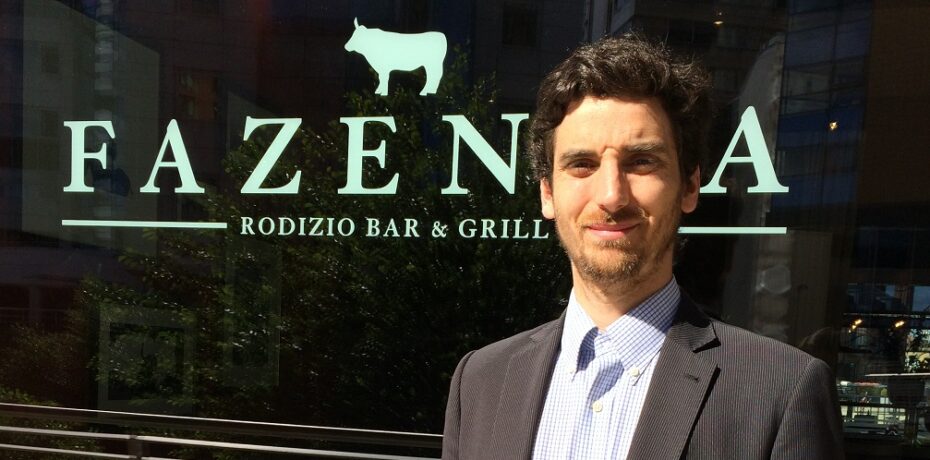Commentary
COMMENT | Attitude change needed in leisure property
The casual dining crunch is forcing nationwide restaurant brands such as Jamie’s Italian and Byron Burger to shut sites, lay off staff and seek rent reductions on underperforming locations, writes Tomas Maunier, director of Fazenda.
Landlords need to take the upsides of working with smaller and independent food and beverage providers more seriously.
Rising labour costs, higher business rates, increased rent, households cutting spending because of wage growth being outstripped by rising inflation are all key factors affecting many sectors of commerce in the North West. But they have had a disproportionate effect on the casual dining sector because of the huge rise in supply of such eateries in recent years, as banks and private equity firms invested in chains to be rolled out in high streets and shopping centres nationwide.
We have built our Fazenda Rodizio Bar and Grill as a chain of independent restaurants in Manchester, Liverpool and Leeds since 2010. Fazenda is inspired by the stylish high-end ‘churrascaria’-style (‘from the barbecue’) eateries of the dynamic and cosmopolitan cities of Sao Paulo and Rio de Janeiro, and we also run a very successful casual dining version in Chester called Picanha.
Our expanding group employs 245 staff with a total of 710 covers across our four locations and we plan to add another 520 covers and take staff numbers to about 400 via a strong pipeline of sites opening this year and in 2019 in Edinburgh, Glasgow and Birmingham.
Against the difficult economic backdrop I have described, too many national casual dining chains opening in too many locations in a short space of time has saturated the market, with the inevitable consequence of chains being forced to shut sites, cut jobs and seek rent reductions on underperforming locations from landlords.
The perceived appeal of major chains over smaller and independent F&B providers was those chains supposedly having the best possible covenant – with the parent company liable for unpaid rent if the business collapsed. That gave landlords a feeling of financial security for if times got tough and tenants looked to vacate premises.
Landlords were seduced by chains that opened and succeeded in London rolling out their brand into the regions, being prepared to pay top dollar in rent on prime locations and with over-optimistic income projections, convinced that capital success would be replicated around the country.
But as we’ve seen, what works in London doesn’t necessarily translate into packed restaurants outside of the capital and only those chains with a very good unique selling point survive and go on to thrive.
Having learned a lesson by being faced with empty units, landlords are increasingly aware of the need to change their strategy to accommodate smaller and mid-market operators with a distinctive offering, delivering authentic menus suited to the taste and requirements of local audiences.
Allied London, our landlord of Fazenda at The Avenue in Manchester’s Spinningfields, appreciated the need to be proactive and flexible by coming to us with an offer to accommodate our requirements rather than waiting for us to approach them. They saw the bigger picture, understood the local F&B market and what business was like for our sector and believed in our potential to create something interesting and different.
While many independent restaurant operators require a unit of about 5,000 sq ft, Allied London appreciated our unusual need for between 6,000 sq ft and 9,000 sq ft by offering to combine two separate units previously occupied by retailers, thereby giving us the 7,000 sq ft, £2m restaurant with 195 covers that we operate today.
We are always extremely careful in choosing locations for Fazenda and wait patiently for the right site and the right rent to be available. We don’t want to debase or devalue our brand and only open where we’re truly happy to be.
By growing at a sustainable pace and making the right decisions on location and our F&B offering, we attract customers, create a successful business and add value to the landlord’s estate.
For example, by opening at Granary Wharf Leeds in 2010, at the height of the financial crisis – a move that could have had an enormous downside – we generated footfall, attracted fellow tenants and increased the value of apartments by encouraging residents to move in.
Ultimately, in Leeds, Liverpool, Manchester and elsewhere, restaurants in general help to create a destination and add value through placemaking for the benefit of all.

Developers and landlords hoping to repeat the kind of success independent operators have had across the North would do well to think flexibly and imaginatively rather than be seduced by the high expectations of big money F&B roll-outs.
- Tomas Maunier is director at Fazenda Group




